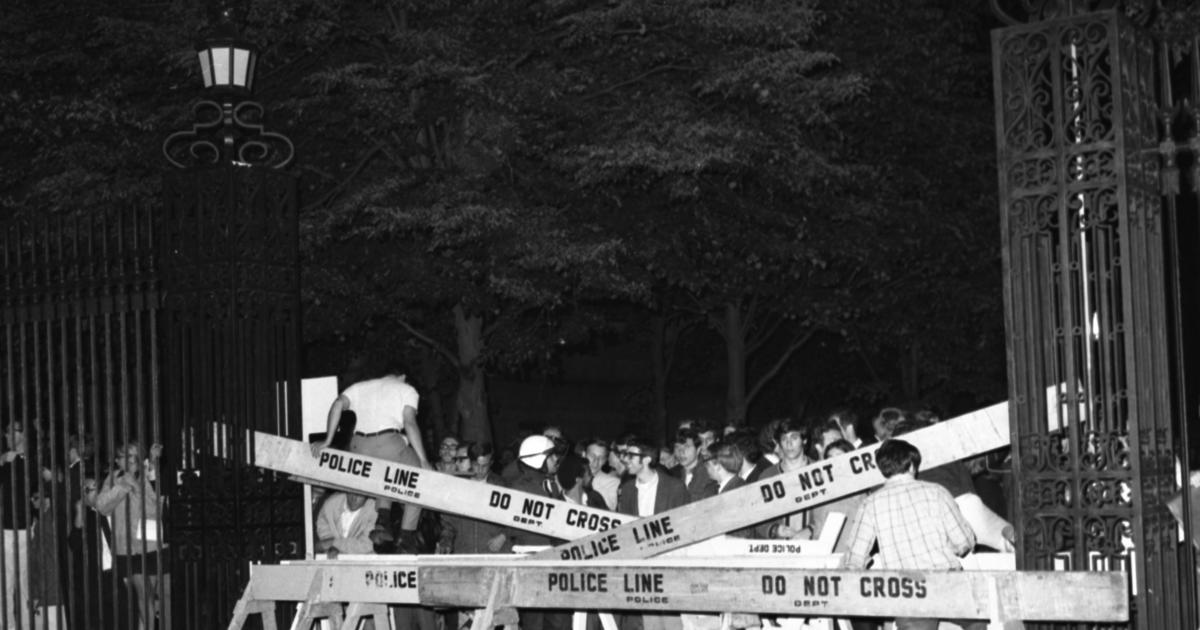Non-Native Species Of Roaches Found Among High Line Plants
NEW YORK (CBSNewYork/AP) -- The High Line Park is known for is the beautiful plants – many of them not native to New York City -- but apparently, unbeknownst to anyone who unboxed and planted the plants, some of them brought along a new strain of cockroach.
Rutgers University insect biologists Jessica Ware and Dominic Evangelista said the species Periplaneta japonica is well documented in Asia but was never confirmed in the United States until now.
New Species Of Roaches Found Among High Line Plants
As 1010 WINS' Gary Baumgarten reported, one man, John, said New York certainly does not need more roaches.
"I haven't given a lot of thought, that's the truth," he said. "I don't like cockroaches though."
The scientists, whose findings were published in the Journal of Economic Entomology, say that it is too soon to predict the impact but that there is probably little cause for concern.
Experts said it is doubtful the new roaches will breed with the native New York varieties, and high competition for food makes it unlikely that their population will explode.
Michael Scharf, a professor of urban entomology at Purdue University, said the discovery is something to monitor.
``To be truly invasive, a species has to move in and take over and out-compete a native species,'' he said. ``There's no evidence of that, but that doesn't mean we shouldn't be concerned about it.''
The newcomer was first spotted in New York in 2012, by an exterminator working on the High Line.
The scientists suspect the little critter was likely a stowaway in the soil of ornamental plants used to adorn the park. ``Many nurseries in the United States have some native plants and some imported plants,'' Ware said. ``It's not a far stretch to picture that that is the source.''
Periplaneta japonica has special powers not seen in the local roach population; it can survive outdoors in the freezing cold.
``There has been some confirmation that it does very well in cold climates, so it is very conceivable that it could live outdoors during winter in New York,'' Ware said. ``I could imagine japonica being outside and walking around, though I don't know how well it would do in dirty New York snow.''
The likelihood that the new species will mate with the locals to create a hybrid super-roach is slim.
``The male and female genitalia fit together like a lock and key, and that differs by species,'' Evangelista says. ``So we assume that one won't fit the other.''
Jennifer Pastrich, a spokeswoman for the High Line, said park officials have been monitoring the roach since discovering it last year and do not believe it is having a negative impact on the park.
"The study speculated the source of the insect's arrival, but we understand it did not check other parks, natural spaces and buildings nearby -- so it's truly anyone's guess!" Pastrich said in a statement. "We source our plants through plant nurseries located mostly in the northeastern U.S., which go through routine USDA inspections to identify harmful pest/disease issues. No issue was raised with us.
Check Out These Other Stories From CBSNewYork.com:
(TM and © Copyright 2013 CBS Radio Inc. and its relevant subsidiaries. CBS RADIO and EYE Logo TM and Copyright 2013 CBS Broadcasting Inc. Used under license. All Rights Reserved. This material may not be published, broadcast, rewritten, or redistributed. The Associated Press contributed to this report.)



